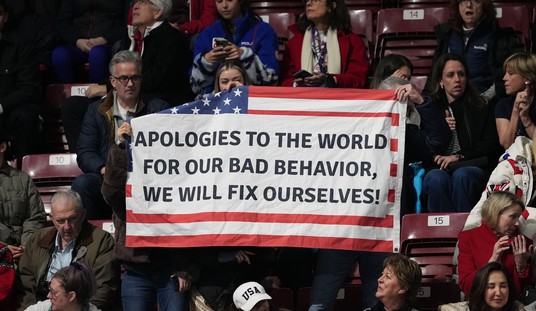
Yesterday, the Washinton Post ran a story with Philip Rucker’s byline titled Trump’s Russia ‘hoax’ turns out to be real.
When Donald Trump finally acknowledged publicly that Russians had hacked Democratic emails and interfered in the 2016 presidential election, the then-president-elect immediately regretted it. He confided to advisers that he did not believe the intelligence. The last thing Trump wanted to do was to endorse the notion that his victory may have been caused by any force other than his own strategy, message and charisma.
“Russia talk is FAKE NEWS put out by the Dems, and played up by the media, in order to mask the big election defeat and the illegal leaks!” Trump tweeted last Feb. 26.
But Trump’s own Justice Department has concluded otherwise. A 37-page federal indictment released Friday afternoon spells out in exhaustive detail a three-year Russian plot to disrupt America’s democracy and boost Trump’s campaign, dealing a fatal blow to one of the president’s favorite talking points.
A Russia “hoax” this was not.
The indictment — signed by special counsel Robert S. Mueller III and announced by Deputy Attorney General Rod J. Rosenstein, both of whom Trump has at times mused about wanting to fire — reveals that the scope of Russia’s alleged efforts to help Trump defeat Democratic nominee Hillary Clinton was extraordinary.
Factually, this is not true. The FBI investigation found that the Russian effort was minimal in terms of people and material. The indictment clearly states that the object was to create confusion, distrust, etc. And the Russians pushed ads and themes supporting Trump, Sanders, and Stein. They attacked Rubio and Cruz and Clinton in the primary. After the election they sponsored anti-Trump rallies.
The real question, of course is when did Trump refer to the entire investigation, as opposed to the Russia collusion part, as a hoax.
If you read the article, there is no evidence he ever did. But there is this correction:
Correction: Due to an editing error, an earlier version of this story made reference to a May 2017 tweet by President Trump. That reference has been deleted.
What was that “May 2017” tweet:
The Russia-Trump collusion story is a total hoax, when will this taxpayer funded charade end?
— Donald J. Trump (@realDonaldTrump) May 8, 2017
Notice it refers specifically to the collusion narrative which seems more and more like a conspiracy theory every day.
The article itself notes that Trump admitted over a year ago that the Russians did attempt to meddle in the election.
It was not until January 2017 that Trump’s advisers persuaded him to acknowledge for the first time that he believed Russians were behind the cyberattacks.
Non sequitur time. WaPo headline is "Justice Dept. deals fatal blow to Trump’s Russia 'hoax.'" Quotes Trump tweet saying collusion charge is hoax. Then says Mueller indictments, which do not allege collusion, have destroyed Trump's claim. https://t.co/nKOmrX1xEu pic.twitter.com/q5XA5phaU1
— Byron York (@ByronYork) February 17, 2018
The Wall Street Journal’s James Taranto, sums it up:
Fallacy of equivocation. Trump's claim was that "the Russia-Trump collusion story is a total hoax." Story cites no evidence of collusion. https://t.co/sHN5arJhqG
— James Taranto (@jamestaranto) February 17, 2018
The quote "the Russia-Trump collusion story is a total hoax" was in the Post story when I initially tweeted about it. That was what Trump called a "hoax," not broader claims of Russian meddling.
— James Taranto (@jamestaranto) February 18, 2018
The Post realized this was a problem. It deleted the quote from the story and appended this cryptic note. https://t.co/gGFF84m7LQ pic.twitter.com/HveCAtcjfa
— James Taranto (@jamestaranto) February 18, 2018
There is now no reference in the story to Trump's calling anything a "hoax," but the headline still uses that word in quotes. pic.twitter.com/WYYeyyEgTs
— James Taranto (@jamestaranto) February 18, 2018
The lede makes the same assertion, albeit without quote marks. pic.twitter.com/54ORxlKHuB
— James Taranto (@jamestaranto) February 18, 2018
If you look at Trump's tweets, you find lots of tweets in which he says "collusion" is a hoax, as in the one the Post quoted then deleted.
— James Taranto (@jamestaranto) February 18, 2018
You can also find tweets with vague references like "the Russia hoax." https://t.co/S8TEK8K2EU
— James Taranto (@jamestaranto) February 18, 2018
The redacted Post story quotes another such tweet, referring to "Russia talk." pic.twitter.com/8OuHoCWpSm
— James Taranto (@jamestaranto) February 18, 2018
But if Trump has ever said, as the story claims, that "Russian interference was a hoax," the Post was unable to find any evidence. Indeed it quotes several instances in which he acknowledged interference.
— James Taranto (@jamestaranto) February 18, 2018
Courtesy of @Bioreducer, here is a screenshot of the deleted part of that Post story. pic.twitter.com/k1YtgbaQ9O
— James Taranto (@jamestaranto) February 18, 2018
If Trump called "Russian interference" a "hoax," why can't the Post produce a quote to that effect? And it appears you can't either. https://t.co/7bnF8NT1oJ
— James Taranto (@jamestaranto) February 17, 2018
This Post story is simply false throughout. It is false in its characterization of the information in Mueller’s indictement. It is false in its characterization of Trump’s view of Russian meddling. But is is also par for the course for a media that that is deeply invested in opposing Trump for no larger reason than opposing him.














Join the conversation as a VIP Member